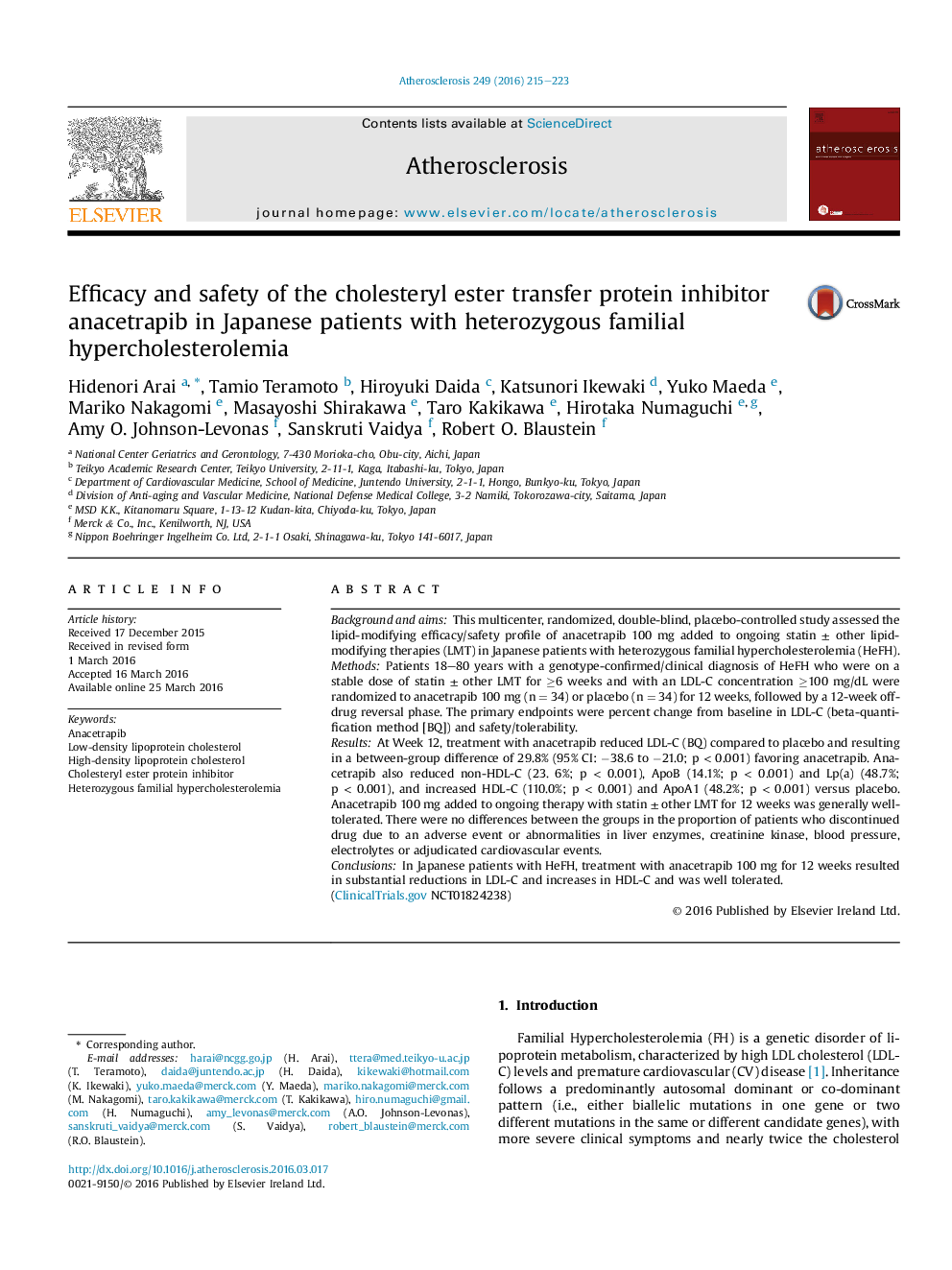| Article ID | Journal | Published Year | Pages | File Type |
|---|---|---|---|---|
| 5943227 | Atherosclerosis | 2016 | 9 Pages |
â¢Anacetrapib is a cholesteryl ester transfer protein inhibitor that raises HDL-C and lowers LDL-C.â¢In studies performed to date, anacetrapib has been shown to be generally well tolerated.â¢A prior study performed outside Japan examined the efficacy/safety profile in HeFH patients.â¢This study examined the safety/efficacy profile of anacetrapib in Japanese patients with HeFH.
Background and aimsThis multicenter, randomized, double-blind, placebo-controlled study assessed the lipid-modifying efficacy/safety profile of anacetrapib 100 mg added to ongoing statin ± other lipid-modifying therapies (LMT) in Japanese patients with heterozygous familial hypercholesterolemia (HeFH).MethodsPatients 18-80 years with a genotype-confirmed/clinical diagnosis of HeFH who were on a stable dose of statin ± other LMT for â¥6 weeks and with an LDL-C concentration â¥100 mg/dL were randomized to anacetrapib 100 mg (n = 34) or placebo (n = 34) for 12 weeks, followed by a 12-week off-drug reversal phase. The primary endpoints were percent change from baseline in LDL-C (beta-quantification method [BQ]) and safety/tolerability.ResultsAt Week 12, treatment with anacetrapib reduced LDL-C (BQ) compared to placebo and resulting in a between-group difference of 29.8% (95% CI: â38.6 to â21.0; p < 0.001) favoring anacetrapib. Anacetrapib also reduced non-HDL-C (23. 6%; p < 0.001), ApoB (14.1%; p < 0.001) and Lp(a) (48.7%; p < 0.001), and increased HDL-C (110.0%; p < 0.001) and ApoA1 (48.2%; p < 0.001) versus placebo. Anacetrapib 100 mg added to ongoing therapy with statin ± other LMT for 12 weeks was generally well-tolerated. There were no differences between the groups in the proportion of patients who discontinued drug due to an adverse event or abnormalities in liver enzymes, creatinine kinase, blood pressure, electrolytes or adjudicated cardiovascular events.ConclusionsIn Japanese patients with HeFH, treatment with anacetrapib 100 mg for 12 weeks resulted in substantial reductions in LDL-C and increases in HDL-C and was well tolerated.(ClinicalTrials.gov NCT01824238)
